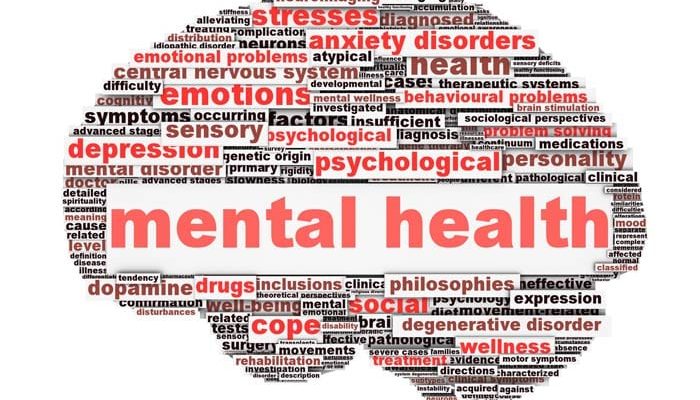America has come a long way in terms of providing resources for people’s mental health. However, the stigma behind mental illness has been a constant issue for those who suffer from it. There are still people who claim that they do not believe in mental health or therapy, and this makes things a lot worse for the people who are suffering. The prevalence of this stigma means that there is a judgment around mental illness and mental health that has infiltrated society and made it exceedingly harder for us to be able to adequately address the situation.
Since the COVID-19 pandemic hit America, people have begun to suffer through increasing amounts of stress. Classes have converted to an online format, which has made learning a lot harder for many students. In addition to this, many jobs in America have either gone completely remote or have carried on normally out of necessity, putting more people at risk. People are afraid to get the virus themselves, but also of spreading it to family members, immunocompromised or not. On top of this, Americans are suffering through the political turmoil that is the presidential election. The amount of stress that Americans are under, combined with the tight grip of restrictions that have lasted for much longer than initially thought has made people suffer in some way, mentally, physically or otherwise. While some people have good coping mechanisms and are able to continue with life as normally as possible, other people, specifically mentally ill people, have been struggling to find the light at the end of the tunnel.
According to the Anxiety and Depression Association of America, 18.1 percent of adult Americans suffer from anxiety alone. According to the Centers for Disease Control and Prevention, about one third of Americans are now showing signs of clinical depression and anxiety as a direct result of the pandemic. Americans are suffering, and it’s more than just being stressed out.
Mentally ill people have had to fight their own disease during the pandemic, but previously or currently neurotypical people have also begun to struggle with their mental health during this time. The stigma behind seeking help, though, is yet another battle that must be fought.
It is common sense that without adequate care or attention, we can and will see a rise in suicides and self-harm, as well as a culture that promotes keeping things to ourselves and not asking for help. People are now beginning to see this according to the CDC, as about one fifth of the American adult population reported seeking mental health help in September. The numbers should keep rising if we all want to stay healthy.
Generation Z, and even millennials, have been doing a great job of breaking the stigma surrounding mental health. Millennials, or Generation Y, have approached the conversation about mental health in a vastly different manner than any generation before. Instead of hiding their struggles, millennials view mental health as a counterpart to their physical health, so seeking help is not as embarrassing or inaccessible for them as it was for previous generations. As reported by the American Psychological Association, Gen Z has actually surpassed millenials in reporting their mental health issues, and young people are becoming increasingly comfortable with sharing their experiences. As Gen Z’ers follow millennials in becoming open, there is more room for conversation about mental health that will ultimately benefit everyone. One of these conversations is about therapy, especially concerning millennials and Gen Z’ers.
The purpose of therapy is for a person to speak to an outside party about any issue that they are facing, and for that outside party to help them come up with a solution to that issue that works for them. As generations get younger and younger, they continue to realize the importance of seeking help for any type of issue that they face. Talking things out with people who are meant to help you is both healthy for the individual and for the rest of society, since it encourages vulnerability and healthy coping mechanisms. Feeling isolated has also become more common as society has advanced, so finding someone to listen to you is another perk that therapy offers.
Therapy, though, is not the only option, and many of us realize this. Being open with family and friends about struggles is an invaluable tool in keeping mentally healthy. Even though a therapist can help, a strong support system is needed for success. Having people to lean on has an immense impact on mental health, and once we become more open with each other, we get closer to each other too. Setting boundaries is important to keep in mind though–once we start to lean on each other too much, it can actually be harmful to one person’s or both people’s mental health. A therapist, though, can help with maintaining those boundaries with friends and family.
Breaking the stigma behind mental health is up to all of us, and it’s about time that we start. As therapy becomes increasingly popular with younger generations, it is important to remember that you can also be a part of breaking the stigma. Taking care of yourself, especially during this chaotic time, is the most important aspect of life, and therapy just might be the way to go for you.


Leave a Reply